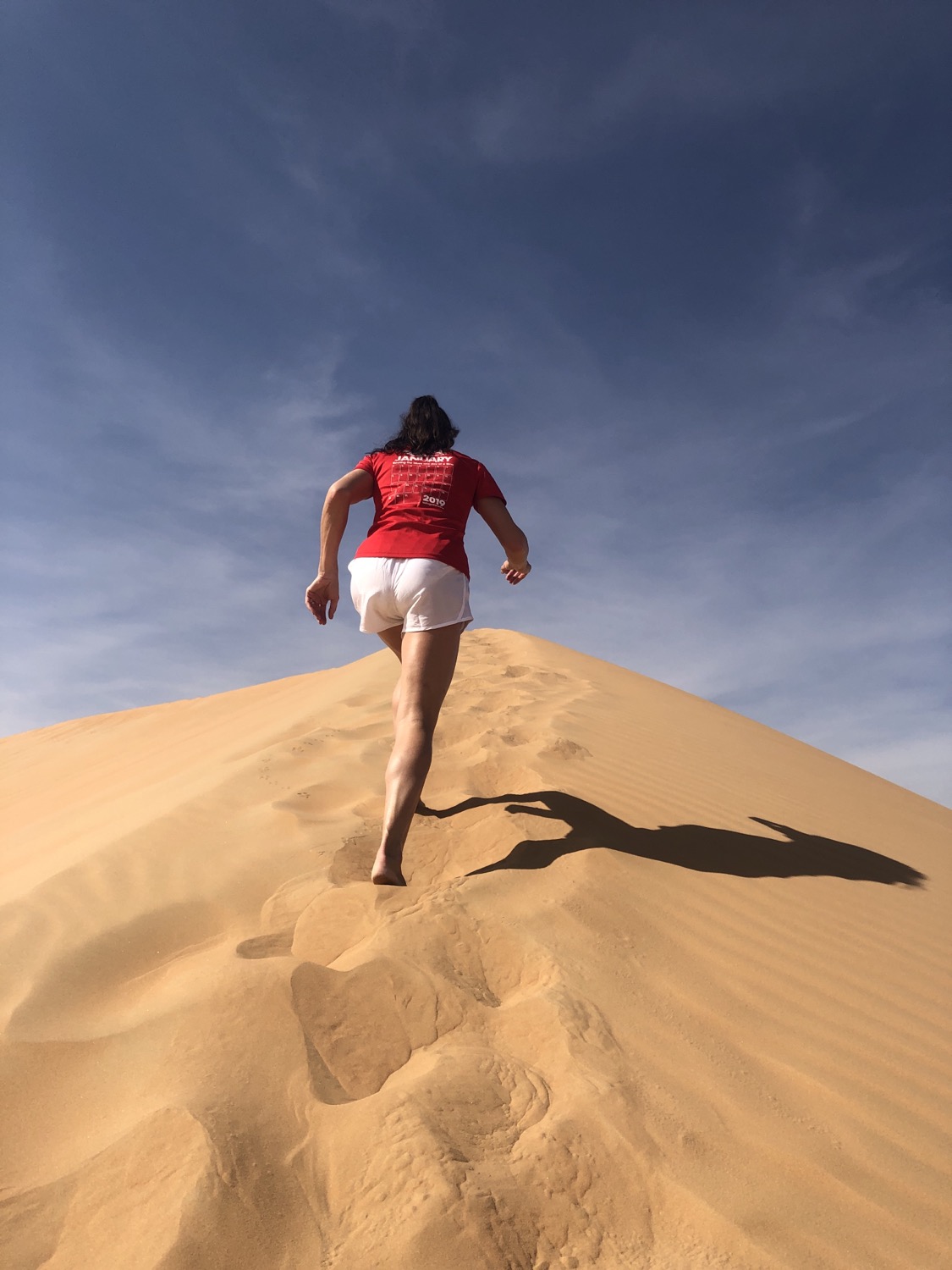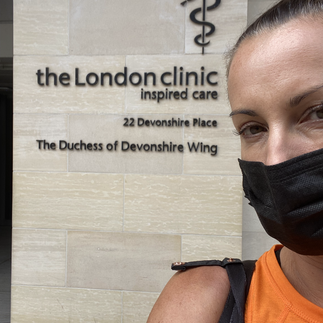COPING WITH INJURY
- Jules Scudder
- Jul 30, 2021
- 6 min read
Sometimes, despite our best efforts, injuries can still happen as a result of running. You try to do all you can to help yourself heal quickly (recently I've had physio, an MRI and acupuncture), but often we just need to be patient.
You might be in some pain but injuries can be just as tough mentally as they can be physically.
Here are 5 TOP TIPS from the myself, the Running Mayor of Clapham and Gemma Bridge, the Running Mayor of Leeds on how to cope during this period.
The Runsome campaign aims to champion running and runners, in our cities, towns and places. As the appointed Running Mayors of Clapham and Leeds, we are passionate about running. Through various initiatives, we are working hard to get more people talking about, and participating in running, alongside cycling and walking for leisure and wellbeing, sport and as a way to get places, see people and do things where we live. We feel that running has the potential to make a real difference and can play a vital role in building happier, healthier and more connected people, places and communities.
However, championing running, when we are not able to run, is a challenge. We are both struggling with injury, and as a result, are finding ourselves talking to others about the benefits of running but are not able to enjoy those benefits. Thankfully, we have developed coping strategies that we utilise to ensure we stay active and maintain good mental health. These strategies could be used by anyone who would like to run, but for whatever reason, whether that be an injury, illness or other commitments, is unable to do so.
STAY ACTIVE
Depending on what injury you have, carrying on with physical activity is beneficial. Not only will it help you psychologically, but many injuries will heal more quickly with a little ‘load’.
Jules: ‘I try to stick to my normal routine and still do things like Pilates and strength training - if my injury allows. Then rather than run on the days I would normally, I swap it out for a different cardio session – but a low impact one. My favourite is the spin bike. I’ve just ordered an Aqua jogging belt, so looking forward to trying that out when it arrives. As well as swapping the activity on the same day I would run, I try to do a similar session. For example, on a normal long run day, I will swap this for a longer, more steady session on the bike. If for example, it’s my normal speed run day, then I will do intervals on the bike instead etc. Not only does it help mentally to stick with your normal routine but if you are mimicking your run sessions you are also training the same energy systems as you would if you were running, so, therefore, getting the same benefits.’
As Running Mayors, we promote the many benefits of running every day. But that doesn’t mean there aren’t loads of other forms of activity that are also great for us and our communities. If you aren’t able to run, then why not consider walking and/or cycling? They are both also great forms of transport, and one’s that can often be slotted in if you have an injury.
PRIORITISE RECOVERY
Although keeping active is good for physical and mental health, it is important not to overdo things, especially when injured. Choose low impact activities to replace running whilst you recover. Swimming, cycling and yoga are all great options. Also, take time to listen to your body - stop if it hurts and seek advice from a physiotherapist if unsure about the best activities to undertake.
Gemma: ‘I’ve struggled with injury on and off over the past couple of years. One of the biggest, and most challenging lessons that I have learnt from the injuries, is that rest is often the best medicine. Whilst it is important to keep active and maintain a good level of training load – both for my recovery and mental health, taking time out to rest and recover is essential if I want to get back to running and racing.’
FUEL APPROPRIATELY
Running burns a lot of energy so it is important to eat enough nutritious food to keep your body fuelled and functioning as it should. When dealing with an injury, it can be easy to forget to fuel correctly. However, what this looks like is different for a variety of reasons, including the type of injury you’ve sustained, the amount of activity you can do and your natural metabolism.
Gemma: ‘When I’m injured it’s easy to think that I need less fuel. But, something I have learnt over recent years is that my body may need the same, if not more fuel than when I can train fully. This is because there is an increase in energy demand as my body needs fuel to heal. But it is important to eat the right kinds of food so that my body has all the nutrients it needs to rebuild and repair.’
Jules: ‘When I’m injured, even though I try to maintain physical activity and still include quite a lot of cardio exercise in my weekly routine, I find it doesn’t quite burn off the same amount of calories. It can be harder to control and maintain your weight, especially if you’re eating as you were when you were running. It is good to be aware of this and if necessary, speak to a professional or seek advice about making changes to your diet where necessary.’
By eating appropriately and paying attention to your diet during the healing process, you can expedite your recovery and get back to pounding the pavement more quickly. If unsure, seek advice from a sports dietitian who will be able to advise you as to what foods can support your recovery.
DON’T COMPARE YOURSELF TO OTHERS
Social media can be a supportive and motivating place. However, social media is also filled with pictures of runners and stories of how brilliantly others are doing. Whilst it is great to be able to celebrate people’s successes, it can be a hard place to be if you are struggling with injury.
Jules: ‘I like to share the good times and the bad times on social media. The support I’ve had from everyone while I’ve been out with my current injury has picked me up sometimes. But, if it’s not making you feel happy for any reason, then perhaps see it as a good time to take a break from it all and have a digital reset! Focus on you and your recovery, don’t compare yourself to others and recover well your way and in your own time!’
But it isn’t just social media where comparisons take place. You may be part of a running or friendship group and you compare yourself to others within those. For example, you may feel that your body seems to be most prone to injury and slowest to heal. This can be frustrating. However, we all deal with training in different ways and also heal at different rates. It is important not to rush the healing process – take the time you need, and do everything you can to recover.
TURN THE INJURY INTO A POSITIVE
No runner that we’ve ever come across enjoys being injured. Quite often we get injured as a result of overdoing things in training and life, and not listening to our bodies. If you have picked up an injury as a result of overtraining, use the time out to your advantage. Learn from the injury. Speak to your coach or seek advice so that you can make positive changes to help you get stronger and prevent the same thing from happening again.
Jules: ‘I’ve found in the past that it’s been very easy for me to start feeling sorry for myself. One time I even found myself resenting other people who could run and I’ve even shed a few tears looking out of my car window as I’ve driven past people running! Now though, I try to think of the positives! As a coach, I can share my experiences with my athletes to reduce the chances of them making the same mistakes. ’
Gemma: ‘Being injured is hard. But it also provides an opportunity to work on the things that often get neglected when training hard. Over the past few weeks, whilst I’ve been injured, I’ve made the most of the extra time I have available and have spent more time stretching, getting stronger in the gym and doing other things I enjoy, like playing my guitar and speaking with friends. When I can train fully again, I will be in a better place, both physically and mentally.’
TO CONCLUDE
Whilst prevention of injury is the best approach to take, if you do pick up an injury and find yourself unable to #runsome of your everyday journeys, errands and commutes, then by 1) staying active, 2) resting well, 3) eating enough, 4) not comparing yourself to others, and 5) turning the injury into a positive, you can emerge from the time out as a stronger runner, and you will also appreciate being able to run – something that will help to motivate you on even the coldest and rainiest of days.
Written by Jules Scudder (Twitter), Running Mayor of Clapham and Gemma Bridge (Twitter), Running Mayor of Leeds














Comments